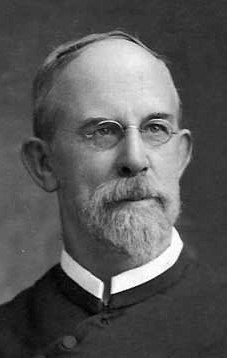Rethinking the calendar is pretty interesting.
A Possible Calendar
By George M. Searle, C.S.P
The Catholic World
(Nov. 1, 1905), p. 239.
But it is possible to accomplish the object intended without encountering this difficulty. Let us suppose the regular year to consist of 52 weeks or 364 days; and let every fifth year have 53 weeks of 371 days. This extra or intercalary week might be put in at any time of the year which would be most convenient, and might be celebrated as a holiday time, or in some other special way. Of course it would be most natural to take the years ending in 0 or 5, such as 1910, 1915, etc., to have 371 days.
This would, however, make the average year rather too long; since four times 364 is 1,456, to which adding 317, we have 1,827, and dividing by 5, we have for the average 365.4. But if we make the century and mid-century year, 1900, 1950, 2000, etc., to have 364 days, and also add one more of 364 days, such as 1975, 2375, etc., in every 400 years, we shall have in 400 years 329 of 364 days and 71 of 371 days; the total will be 146,097 days in 400 years, which is exactly what the Gregorian Calendar gives.
It is true that the displacement of any particular day from its average or mean place in the season would be, on this plan, as much as three and a half days, instead of only half a day, as at present; but that seems of little consequence, as the seasonal change in that time is really imperceptible to people in general, and astronomers could easily become accustomed to it.
If we reduce the normal year to 364 days by dropping out the 28th of February, as would seem most natural, and make Sunday the 1st of January, we should have, of course, New Year’s Day and Christmas always on Sunday; the secular celebration could be on the Monday following. Decoration Day and the Fourth of July would always occur on Monday, which would be for us an obvious advantage. The intercalary week would most naturally occur between April and May, as May 1 would always fall on Sunday.
It needs hardly to be said that this calendar is not proposed seriously; with any idea, that is to say, of its actual adoption; the difficulties are too considerable, and the advantages not sufficient to warrant any such expectation. But it certainly would be an advantage in some ways to have a year in which every day of every month had its fixed day of the week to fall on. It would dispose of the whole matter of perpetual calendars for the future. Easter would always fall on the 27th of March, or the 3d, 10th, 17th, 24th of April; its calculation might perhaps be easier than at present.
Return to the

Leave a Reply